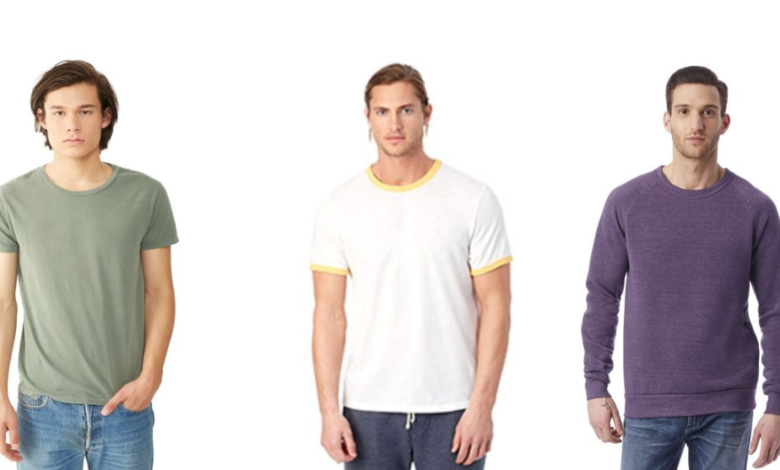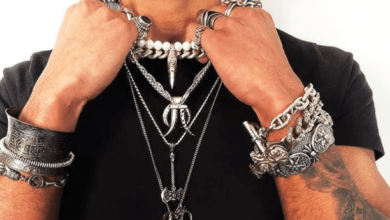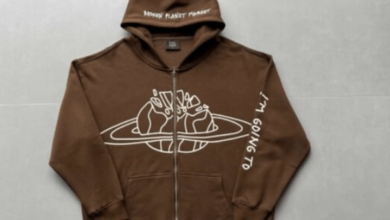How Alternative Clothing Brands Are Shaping Fashion Trends

In recent years, the fashion industry has experienced a shift in its approach to style, sustainability, and inclusivity. While traditional fashion houses have historically set the pace, alternative clothing brands have slowly but surely started to dominate the landscape, challenging established norms and introducing innovative trends that reflect the diverse needs of modern consumers. One such brand, The Apparel Factory, has become a significant player in this revolution. But how exactly are alternative clothing brands like The Apparel Factory shaping fashion trends? Let’s dive into the different ways these brands are impacting the fashion world.
The Rise of Alternative Clothing Brands
Alternative clothing has always existed, but it has only recently gained mainstream recognition. These brands often cater to consumers who feel disconnected from mainstream fashion due to factors such as size, inclusivity, cultural differences, or sustainability concerns. With the rise of social media and influencers, consumers can now easily discover niche brands that resonate with their individual tastes and values. Brands like The Apparel Factory have tapped into this desire for individuality, offering unique designs that reflect alternative subcultures, from punk to goth to streetwear.
One of the primary drivers behind this rise is the growing desire for self-expression. Consumers today want to wear clothing that speaks to their personality, values, and worldview. Alternative clothing brands provide an avenue for this, offering options that move away from cookie-cutter styles and embrace diversity. Whether it’s through bold graphics, unconventional fabrics, or avant-garde designs, these brands allow people to showcase their true selves.
See also: Hellstar: A Fashion Revolution in Streetwear
A Shift Toward Sustainability
In the past decade, sustainability has become one of the most talked-about topics within the fashion industry. Traditional fast fashion brands have long been criticized for their environmental impact and labor practices, leading to a significant consumer backlash. Alternative clothing brands, including The Apparel Factory, are stepping in to fill this gap by prioritizing eco-friendly materials and ethical production methods.
By embracing sustainable fabrics like organic cotton, hemp, and recycled materials, these brands are not only reducing their carbon footprint but are also educating consumers about the importance of mindful consumption. The Apparel Factory, for instance, has integrated eco-conscious practices into every aspect of its production, from sourcing materials to packaging. This focus on sustainability has become a hallmark of alternative brands, influencing the larger fashion industry to take note and, in some cases, adopt more sustainable practices themselves.
The shift toward sustainability is also evident in the growing trend of upcycled clothing. Many alternative clothing brands, including The Apparel Factory, repurpose old garments to create new pieces. This approach not only helps to reduce textile waste but also allows for the creation of one-of-a-kind items, further adding to the appeal of alternative fashion.
Celebrating Individuality and Diversity
Mainstream fashion often promotes a narrow view of beauty, largely defined by Eurocentric standards. However, alternative clothing brands, such as The Apparel Factory, are actively challenging this ideal by celebrating individuality and diversity. These brands emphasize that fashion is for everyone, regardless of size, shape, gender, or cultural background.
The Apparel Factory, for example, offers a wide range of sizes and designs that cater to a broad spectrum of body types. This inclusivity is not just limited to sizing; it extends to gender-neutral options and designs that allow people to express their true selves without being confined to traditional gender roles. This approach has resonated with consumers who feel overlooked by mainstream fashion and has been instrumental in shifting the industry toward greater diversity.
Moreover, alternative clothing brands often incorporate cultural references and unique design elements into their collections, allowing people to celebrate their heritage and personal interests. For instance, The Apparel Factory often includes indigenous prints, vintage band graphics, and street art-inspired designs in its offerings. This celebration of diversity not only empowers individuals to embrace their uniqueness but also encourages others to expand their horizons and learn about different cultures and subcultures.
Collaborations and Crossovers with Mainstream Brands
In the past, alternative clothing was often seen as a niche market with limited appeal. However, in recent years, there has been a growing trend of collaborations between alternative brands and mainstream fashion labels. These partnerships have allowed alternative brands to reach a larger audience, while also influencing mainstream fashion with their distinctive designs.
The Apparel Factory, for example, has partnered with well-known brands in the past to create limited-edition collections that merge the worlds of high fashion and alternative streetwear. These collaborations often bring fresh perspectives to established fashion norms, blending edgy designs with luxury fabrics or high-performance materials. By collaborating with established brands, alternative clothing labels can bring their unique aesthetics into the mainstream, while simultaneously pushing boundaries and encouraging more inclusive and innovative trends.
This blending of alternative and mainstream styles also paves the way for new consumer segments. Younger, fashion-forward individuals who may not have previously embraced mainstream fashion are now seeking out alternative pieces to complement their wardrobes. The lines between traditional fashion categories are increasingly blurred, with alternative clothing brands at the forefront of this shift.
The Influence of Social Media and Street Style
One of the most significant ways alternative clothing brands are shaping fashion trends is through the power of social media. Platforms like Instagram, TikTok, and Pinterest have given rise to new forms of fashion influence, with influencers and content creators showcasing their unique styles and encouraging their followers to experiment with new looks. These platforms have made it easier for niche brands like The Apparel Factory to gain visibility and connect with like-minded individuals across the globe.
Street style has also played a major role in the rise of alternative fashion. The global streetwear movement, with its roots in skate culture, hip-hop, and punk, has grown exponentially in recent years. Brands like The Apparel Factory have embraced streetwear aesthetics, blending urban style with alternative design elements. The result is a new breed of fashion that blends comfort, individuality, and boldness, appealing to young consumers who are no longer bound by traditional fashion rules.
Moreover, social media has given consumers a platform to share their personal style, turning fashion into a community-driven activity. People are no longer simply following trends; they are setting them. As a result, alternative brands are increasingly shaping the fashion conversation by creating pieces that speak directly to the diverse, evolving needs of modern consumers.
Breaking Away from Seasonal Trends
One of the challenges that the fashion industry has traditionally faced is the rigid cycle of seasonal trends. Consumers are expected to update their wardrobes with each new season, often leading to overconsumption and waste. Alternative clothing brands, however, are breaking away from this model by promoting timeless pieces that can be worn year-round.
Instead of adhering to the typical seasonal rotations, brands like The Apparel Factory create collections that focus on versatility and longevity. Whether it’s a graphic hoodie, a well-crafted leather jacket, or custom-designed sneakers, these items are designed to transcend seasonal trends, making them more sustainable in the long run. This approach is not only beneficial for consumers looking for more practical wardrobe options, but it also helps to reduce the overall environmental impact of the fashion industry.
The Future of Alternative Fashion
Looking ahead, it’s clear that alternative clothing brands will continue to have a significant influence on the fashion industry. The trend toward sustainability, inclusivity, and self-expression is not a passing phase but a shift in consumer behavior that is reshaping the way clothes are made, marketed, and worn. Brands like The Apparel Factory are at the forefront of this movement, leading the charge in creating fashion that reflects the diversity and values of today’s consumers.
As technology advances, we can expect further innovations in fabric production, design, and manufacturing, allowing alternative clothing brands to push the boundaries even further. Virtual fashion shows, augmented reality shopping experiences, and the use of AI in design are just a few of the possibilities that could shape the future of alternative fashion. In addition, the rise of second-hand and rental fashion platforms will likely continue to blur the lines between ownership and experience, offering new ways for consumers to engage with alternative clothing brands.
Ultimately, alternative clothing brands like The Apparel Factory are shaping the future of fashion by embracing sustainability, celebrating individuality, and breaking free from the traditional constraints of the fashion industry. By staying true to their values and offering unique, high-quality pieces that cater to a diverse range of consumers, they are paving the way for a more inclusive, creative, and environmentally conscious fashion landscape.
Conclusion
Alternative clothing brands are having a profound impact on the fashion industry, not only by challenging established norms but by introducing new ideas that prioritize sustainability, inclusivity, and self-expression. The Apparel Factory is one such brand that has successfully tapped into this movement, offering unique designs that speak to the diverse needs of modern consumers. As the fashion world continues to evolve, alternative clothing brands will remain a driving force in shaping trends and pushing boundaries, encouraging individuals to embrace their true selves and rethink what fashion means in the 21st century.





